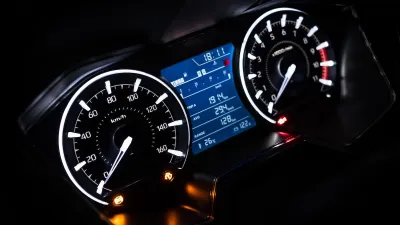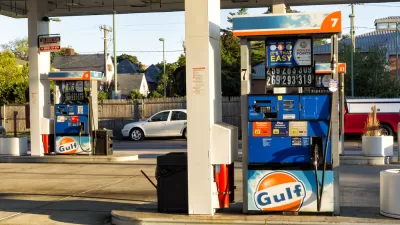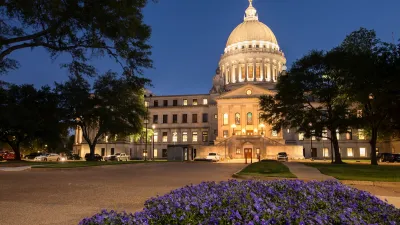Vehicle Miles Traveled (VMT) fees are a bad way to pay for roads, according to an article by Joe Cortright.

"While we desperately need a way to pay for roads that better reflects the value of the space we use, just moving to a new model isn’t enough. If we don’t get the new pricing system right, it could make many of our transportation problems worse," writes Joe Cortright.
According to Cortright, technology and consumer acceptance have advanced beyond the usefulness of the VMT fee. Instead, Cortright suggests a more holistic approach to pricing:
So as we think about how to design a road finance and pricing system to replace the gas tax (and other taxes), we ought to have a system that accounts for all the cost-drivers associated with travel: heavier vehicles that cause more road wear should pay higher fees, as should vehicles that pollute more. How much you pay to drive on a road should be related to how much that road costs to build and maintain. Use a congested urban highway at the peak hour, and you’ll pay a higher fee than if you use a rural road at 2 am.
The article critiques the VMT fee from a couple of additional angles, arguing that a VMT is unlikely to raise as much revenue as proponents of the scheme expect, and that the gas tax is already an effective carbon tax—a much more effective carbon tax than a VMT fee can be. Planetizen coverage of the first experiments with VMT fees includes stories from Oregon, Hawaii, and California. Other states could follow.
FULL STORY: An idea whose time has passed: The VMT Fee

Maui's Vacation Rental Debate Turns Ugly
Verbal attacks, misinformation campaigns and fistfights plague a high-stakes debate to convert thousands of vacation rentals into long-term housing.

Planetizen Federal Action Tracker
A weekly monitor of how Trump’s orders and actions are impacting planners and planning in America.

Chicago’s Ghost Rails
Just beneath the surface of the modern city lie the remnants of its expansive early 20th-century streetcar system.

Bend, Oregon Zoning Reforms Prioritize Small-Scale Housing
The city altered its zoning code to allow multi-family housing and eliminated parking mandates citywide.

Amtrak Cutting Jobs, Funding to High-Speed Rail
The agency plans to cut 10 percent of its workforce and has confirmed it will not fund new high-speed rail projects.

LA Denies Basic Services to Unhoused Residents
The city has repeatedly failed to respond to requests for trash pickup at encampment sites, and eliminated a program that provided mobile showers and toilets.
Urban Design for Planners 1: Software Tools
This six-course series explores essential urban design concepts using open source software and equips planners with the tools they need to participate fully in the urban design process.
Planning for Universal Design
Learn the tools for implementing Universal Design in planning regulations.
planning NEXT
Appalachian Highlands Housing Partners
Mpact (founded as Rail~Volution)
City of Camden Redevelopment Agency
City of Astoria
City of Portland
City of Laramie





























